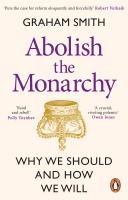'A crucial, riveting polemic in support of one of the most precious things humanity has built - democracy itself' OWEN JONES
'Graham Smith shows what fools our rotten constitution makes of us, with a monarch as emblem of a country beset by nepotism, backhanders, chumocracy and inherited privilege. Read and rebel!' POLLY TOYNBEE
We're constantly told the same things about the monarchy:
But the monarchy is good for tourism..
It isn't! Evidence points to some royal weddings actually having a negative impact on inbound tourism.
But the monarchy makes a big difference to charity..
Of the approx. 1,200 charities with a royal patron, 74% had no contact with their patron during the preceding year.
But everyone loves the monarchy..
A January 2023 poll showed support for the monarchy is down 55 percent.
It's wrong in principle and it doesn't work in practice. It doesn't have to be this way.
They say Britain should be proud to have the mother of parliaments, to be a shining beacon of democracy and an example to other nations. But there's an elephant in the room.
At the heart of power is a single family. They weren't elected but they live off the public purse. They aren't accountable to anyone, and yet between them they are privy to more government secrets than many cabinet ministers. Divinely appointed using a special hat, the head of the family is your superior, you his subject. Apparently he is guardian of our constitution - but we're also told he wouldn't dream of interfering in politics.
If you accept the monarchy, you must accept the moral compromise that comes with it, from its erosion of the principle of equality to the secret interference in our laws. But the good news is that we don't have to accept it. True democracy is within our reach.


